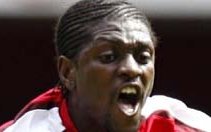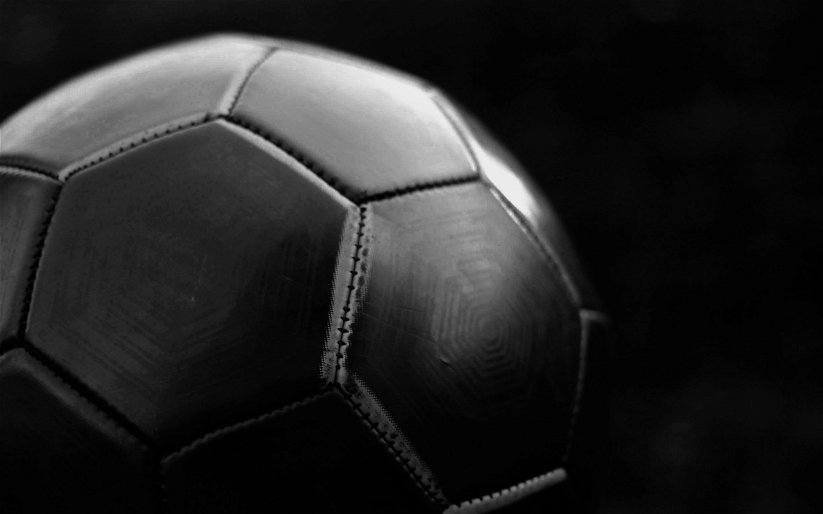Tomorrow Manchester United come to North London. Though there is little riding on the game for Arsenal beyond pride and the lingering fear of Manchester City`s breath on our necks, meetings between the two sides are scarcely low key. The Box Office billing of the game goes back generations, from the 20 man brawl at Old Trafford in 1990 which saw United docked one point and Arsenal 2, the five minute Cup Final in 1979, the ill tempered transfer of Frank Stapleton in 1981 which saw both clubs board of directors fall out. Both are huge clubs and big clubs operate at the top table of football more often than not. However, the sporting rivalry has changed over the years, through the prism of the Wenger Ferguson rivalry, Keane v Vieira, Arsenal v van Nistelrooy multiplied to the power of sky sports. There was a time when the two clubs rather enjoyed one another`s company. In fact, possibly the first time Arsenal; v Manchester United was considered a Box Office fixture could be traced back to 1st February, 1958 and the last stand on English soil for the Busby Babes.
By 1958, Arsenal`s decline from the great side of the 30s had become terminal. The pressure on the club to meet the lofty standards of that epoch making team had become too much; the fan base were expectant and often poisonous. Links to that glorious era were being severed with Alex James dying in 1951, Tom Whitaker- who took Arsenal to two league titles and an F.A. Cup in the late forties and early fifties, found that the pressure of the Arsenal team declining would kill him. He died of a heart attack whilst in office in 1956. Arsenal were struggling to attract the sort of player to return them to greatness largely due to the parsimony of the club`s board. Whitaker had tried to attract Stanley Matthews to Highbury in 1954, but found himself rebuked when Matthews countered that his quality of life would be unaltered had he moved.
Prior to Cesc Fabregas relieving him of his record, Gerry Ward was Arsenal`s youngest ever player having made his debut at 16 years and 233 days. The supporters placed an expectation upon him he could not live up to in lieu of big names. Midfield toiler Vic Groves foreshadowed some of the treatment his nephew Perry would receive 30 years later, having been booed by his own support and sent abusive mail. Arsenal was not a happy club in 1958, undergoing a trophy draught that would eventually last 17 years and playing out a futile mid table existence, many felt manager Jack Crayston was just too nice. Crowds at Highbury had dropped alarmingly.
Manchester United meanwhile, were passing Arsenal on their upward trajectory. They had secured league titles in each of the last two seasons and only a Cup Final defeat to Aston Villa the previous year had prevented them from becoming only the 4th side in English football to win the League and Cup Double. During 1957-58 they had struggled with a mid season slump, allowing Wolves to take charge of the 1st Division table. This was due in large part to the fact that manager Sir Matt Busby had rebelled against Alan Hardaker and the Football League to take part in the European Cup- the first English club to do so. As a sign of their distaste, the Football League refused to alleviate any fixture problems associated with international travel. With United toiling in mid season, Busby introduced several of his talented young reserve players into the team, such as Charlton, Eddie Colman and Kenny Morgans. He found United were revitalised and pressuring Wolves at the top again. With such a young and flourishing side with the fervour of success under its flat caps, United were surely the side that would dominate the 1960s. On February 1st, 1958, they came to Highbury and a crowd of 63,578 packed in to watch (including a few members of my family). It was easily Arsenal`s best home crowd of the season and revealing of the fact that most had come to see the opposition. Whatever their reasons for coming, none of them went home disappointed.
Buoyed by the raucous crowd, Arsenal flew out of the traps quickly, but still found themselves floundering to the power and majesty of United`s attacks. After ten minutes, Kenny Morgans- only just 18 years old, flew past Arsenal wing half Stan Charlton on the left flank, pulled the ball back to the edge of the area and Duncan Edwards unleashed a right foot shot of such ferocity, that it spun into the roof of the net via Jack Kelsey`s stinging palms. Too hot to handle. Arsenal were dumbstruck and soon found United had doubled their advantage before the 20th minute had been reached. Albert Scanlon powered down the right flank and again cut the ball back, this time for Bobby Charlton who hit a trademark thunderbolt from the edge of the area, leaving Kelsey helpless once more. By the half an hour mark, the visitors had put the game beyond doubt. Scanlon hit a forty yard cross field ball to his assistant tormentor Morgans on the left; Morgans hit a first time centre to Tommy Taylor which he gleefully stroked home from six yards.
Usually such a first half shoeing would have had the home fans murmuring their discontent, but the mood was one of amazement. Colman and Edwards` power in the midfield was married with the feline speed and instinct of Morgans and Scanlon on the flanks. Taylor and Charlton were only too happy to feed on their scraps. But the game took a dramatic turn in the first ten minutes of the second half. Three goals in six minutes from Arsenal turned the game on its head. Firstly, when David Herd collected captain Dave Bowen`s long pass and coolly slotted past legendary Irish keeper Harry Gregg. (Gregg was voted the goalkeeper of the tournament at that summer`s World Cup). Scenting blood, Gordon Nutt sailed down the left three minutes later; sending a swerving cross to Groves on the back post, his nod down was swept home by Jimmy Bloomfield. With the Highbury crowd in full voice behind them, it only took the Gunners another 100 seconds to level. Nutt again powered past Faulkes on Arsenal`s left and sent another pinpoint delivery, this time straight to the head of Bloomfield whose stooping header crept inside the far post to send Highbury into raptures.
The elation was temporary though; United hadn`t collected two straight league titles without requisite belly fire. Scanlon once again tore Stan Charlton to shreds on the left, pulling back another succinct cross for Dennis Viollet to head past Kelsey. Tommy Taylor restored a two goal cushion by powering a shot home from a tight angle. Something my Grandfather told me some years later was that what set this United side apart was how much power they could generate in their shooting. In the days of wet, leather, sodden footballs, crashing a shot into the roof of the net from outside the area would have left bruises that even a kick boxer would be left grimacing at. Yet Charlton, Edwards, Taylor et al were able to wallop the ball at ferocious speeds. Any keeper that wasn`t beaten by the positioning of the finish, would have been well advised to move aside and allow the ball past lest they lose a limb!
But Arsenal grasped the nettle yet again. United faced a long haul trip to Belgrade that Tuesday and had probably hoped to see the last third of the game out in comfort. But Vic Groves` through pass split the sleeping United defence, leaving David Herd through on goal. He tempted Gregg out of his goal, before squaring the ball to Tapscott to make it 5-4. The Gunners laid siege on the United goal in the last 15 minutes, with Herd and Tapscott going close, but the final whistle bought the curtain down on a breathless game of football, United finishing the victors at 5-4. This was of particular relief to United as league leaders Wolves had crushed Leicester City 5-1 that afternoon. At the end of the match, both sets of players left the pitch with their arms around one another, exhausted, but very aware that they had produced 90 minutes of pure theatre. The home crowd warmly applauded the victorious visitors, with Charlton, Taylor and Edwards acknowledging their sportsmanship with conciliatory waves to the Arsenal crowd. The two sets of players got on well and it was usually custom for them to share a drink and a meal after the game together. But Busby reasoned that his team had a long haul flight on the horizon and ordered his young charges back to Manchester. Five of his players that left the pitch that day in North London, never played in England again.
Many years later, Arsenal defender from that day Denis Evans speaks with regret. He reveals he had seen Duncan Edwards leave his team mate Gerry Ward sprawling on the floor, before shouting in his broad Black Country burr, “Oh, f****g get up!” Evans says that a matter of minutes later, he had the perfect opportunity to wrap Edwards` ankles. He didn`t, partly, he says because it wasn`t Arsenal`s style to kick people. “Part of our problem at the time.” Secondly, because it was Edwards, the crowned prince of English football. It was out of respect that he did not take vengeance. He now says that had he exacted retribution, Edwards might never have travelled to Belgrade that week. After a 3-3 draw in Belgrade, which saw United qualify for the European Cup semi-finals 5-3 on aggregate, their plane was beset with technical problems due to heavy snow. They were forced to stop over at Munich-Reim airport to refuel. The runway was covered in ice and the plane made two unsuccessful take off attempts. On the third attempt, Duncan Edwards, Tommy Taylor, Mark Jones, Eddie Colman and Frank Swift moved to the back of the plane, thinking it to be safer. As the plane skidded from the runway, the pilot lost control and the plane crashed, having not taken off. Geoff Bent (25), Roger Byrne (28), Eddie Colman (21), Mark Jones (24), David Pegg (22), Tommy Taylor (26) and Liam Whelan (22) perished, along with 3 United support staff, a fan, a club steward, a co-pilot, seven journalists (one of whom, ex Manchester City goalkeeper Frank Swift) and a travel agent. Duncan Edwards died from his injuries in a Munich hospital 15 days later.
A country mourned at a promising young side torn apart by tragedy. United pieced themselves together and somehow made the 1958 F.A. Cup Final with a scratch side of reserves and hastily assembled amateurs. Busby-, who was badly injured but survived the crash, rebuilt the team with the likes of Law, Stiles and Best and eventually they did win the European Cup in 1968. Arsenal rather bumbled on through the 60s in mid table until they broke open the trophy piñata by securing the Fairs Cup in 1970- their first trophy in 17 years. But on February 1st, 1958, the good days were back at Highbury, if only for one day. Those inside the ground knew instantly they had witnessed one of English football`s classic league fixtures. Five days later, they would become aware that the game would take on a tragic significance in retrospect, as the last waltz of the Busby Babes on English soil.LD.
The teams that day were;
ARSENAL; 1.KELSEY, 2.S.CHARLTON, 3.EVANS, 4.WARD, 5.FOTHERINGHAM, 6.BOWEN (c), 7.GROVES, 8.TAPSCOTT, 9.HERD, 10.BLOOMFIELD, 11.NUTT.
MANCHESTER UNITED; 1.GREGG, 2.FAULKES, 3.BYRNE (c), 4.COLMAN, 5.JONES, 6.EDWARDS, 7.MORGANS, 8.TAYLOR, 9.CHARLTON, 10.VIOLLET, 11.SCANLON.
Follow me on twitter @LittleDutchVA
Share this article

